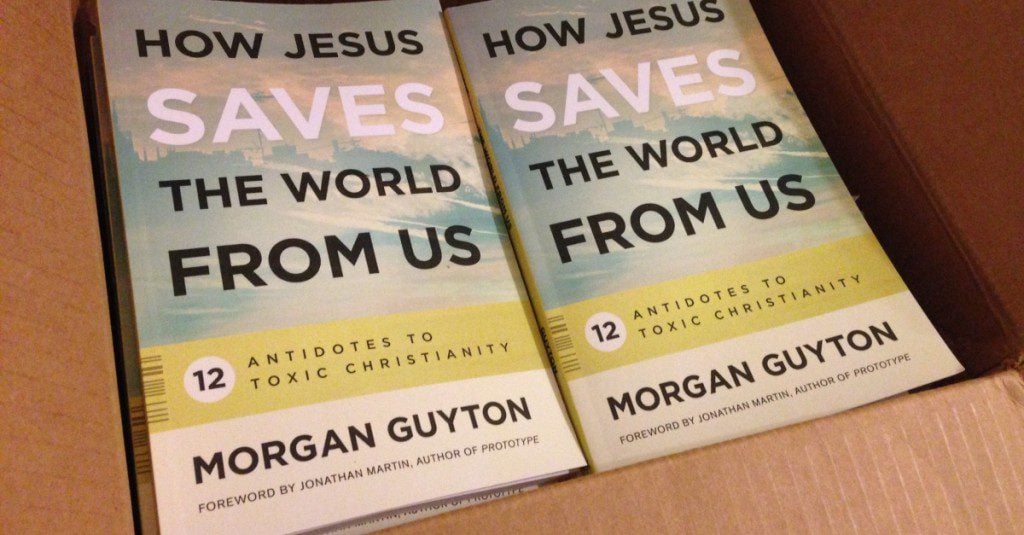One of the hardest things I’ve had to learn as a writer is that I’m always at least half full of crap. I wrote a blog post on Wednesday that I felt a little bit too awesome about. I made connections I hadn’t made before about the way that queerness could purge American Christianity of its white supremacy. It didn’t get the traffic I thought it deserved, so I was irritated.
And then I got a comment from someone who said he hoped I would be a little less self-righteous in talking to people I disagree with at our General Conference. I decided not to blow him off as a troll so I asked him what had triggered his response. What he wrote after that was very convicting. Amidst the hype of my book release, I’ve gotten pretty zealous and strident, so I thought it would be worthwhile to pause and reexamine the agendas within me that compromise my integrity, or the four reasons I cannot trust my own writing.
1. I’m an omega male with an ax to grind against the alphas
Too much of where I’m coming from is still shaped by the woundedness of getting picked last for kickball in third grade and not fitting in with the jocks and preps in middle school. I have a visceral disdain for successful, confident alpha males. I didn’t become a feminist originally because I cared about and respected women. It was because I hated the guys who got the hot girls who didn’t give me the time of day. I’ve always defined myself against guys who are naturally funny and attractive and gregarious. The way that I started writing was to figure out comebacks when I was bullied. I never could think on my feet very well, but I could decimate my bullies with a brutal poem in the privacy of my room when I get home. Too much of my instincts are still shaped by that visceral rage.
2. I’m a dissident evangelical Christian
I can understand why someone reading my writing would be puzzled to find that I still self-identify as an evangelical. Why not stop having pointless arguments with people whose views aren’t going to change and move on? That would be easy if I were completely convinced that evangelicals were absolutely wrong about everything. The truth is I’m haunted by a snide little Russell Moore voice in my brain that tells me every time I fail in ministry it’s because I’m not preaching the true gospel. There is legitimate spiritual mojo in evangelical Christianity that creates compelling community. Part of the reason I want to dismiss the whole thing as suburban white self-validation is because I’m haunted by the thought that the evangelicals might be right and I couldn’t really find my way to thinking like they do even if I tried. Except that I do think like them sort of. So I’m in a constant argument with myself and some of what I write is a spillover of that confusing internal debate.
3. I’ve been indoctrinated with the truthiness of literary theory
As an English major, when I analyze reality, I look for tropes and memes rather than empirical data. That’s what I was trained to do with literature. As a result, I view the world as a text rather than a test tube. The two books I read that have completely ruined me are Michel Foucault’s History of Sexuality and J. Kameron Carter’s Race: A Theological Account. I cannot unsee the bourgeois use of sexual purity for self-justification that Foucault pointed out. Nor can I unsee Carter’s insight that whiteness is the attempt to create a universalized humanity that transcends cultural particularity. I see confirmations of Foucault and Carter’s claims all over contemporary discourse, especially in white evangelical Christianity. But I’m often too quick to make “truthy” cosmic claims about what’s “really” going on in our culture, because I’m reading it like a text rather than a test tube.
4. I sometimes mean “them” when I say “us”
There’s nothing I hate more than the disingenuous “we.” I always try to make sure I’m not using “we” to pretend like I’m “self”-critiquing when I’m really talking about my opponents. Dissident evangelicals like me do this a lot. It’s very confusing. Are “we” really evangelicals or are evangelicals really a “them” when we bemoan evangelicalism? We feel implicated everytime an evangelical baker refuses to make a wedding cake. So it feels like an “us” even though we’re mostly talking about the people we’re always arguing against. I tried very hard to write this book about how Jesus saves the world from us (a.ka. all of us, really including me) and not how Jesus saves the world from them. I can honestly identify myself as an object of critique in each of my twelve chapters. But it’s hard not to believe that my theological opponents need Jesus to save the world from them more than I do.
















